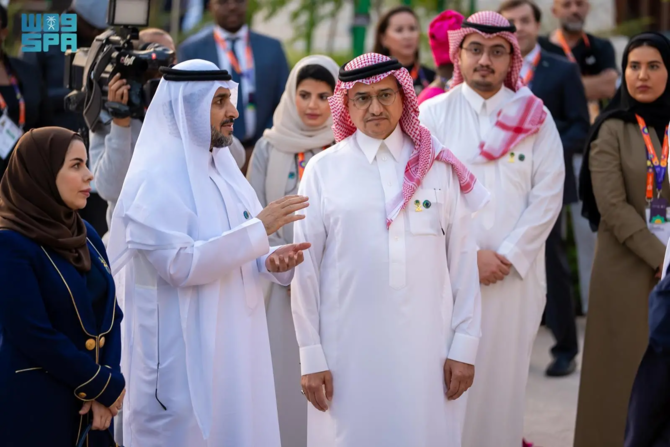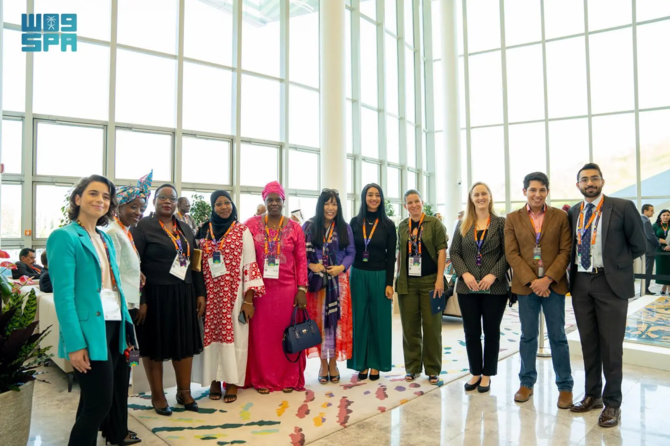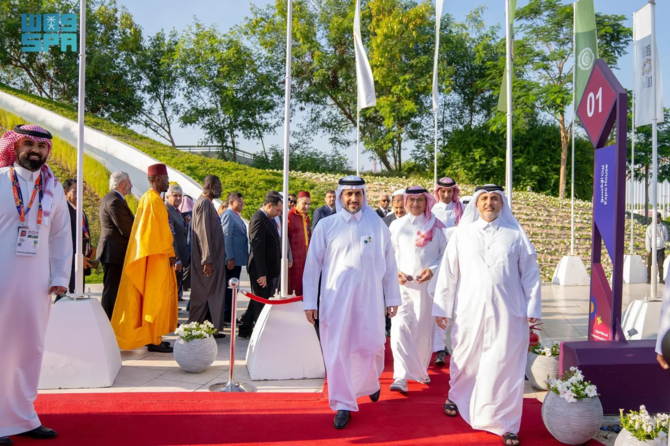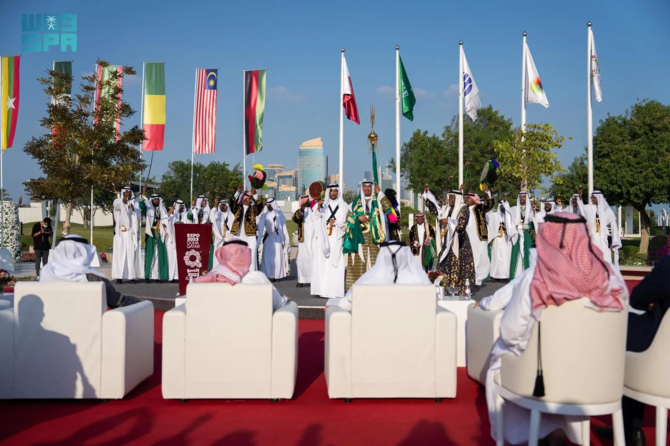RIYADH: The 2023 International Horticultural Expo in Doha hosted a special “Saudi Day” on Friday, which included performances and activities that embodied the folklore, heritage, history and achievements of the Kingdom.
Guests at the celebration, which took place at the event’s Expo House, included the Saudi ambassador to Qatar, Prince Mansour bin Khalid; the Qatari minister of municipality, Abdulla Al-Subaie, and ambassadors and other representatives of countries taking part in the expo, the Saudi Press Agency reported.
Mansour Al-Mushaiti, the Saudi deputy minister of environment, water and agriculture, said the Kingdom’s participation in the expo is affirmation of its global leadership in all fields relating to its efforts to achieve sustainability and preserve natural resources.
He praised the achievements made under the Kingdom’s Vision 2030 national development and diversification plan, particularly in farming, including the provisions of the Agricultural Development Fund through loans and long-term facilities for strategic projects worth SR50 billion ($13.3 billion).
Al-Mushaiti also highlighted the Kingdom’s pioneering role in the field of energy and its continuing journey toward sustainability, through the launch of local and international initiatives related to clean energy, the reduction of carbon emissions, increasing green spaces, and sustainable waste management.
He said that before the launch of Vision 2030 in 2016, less than 4 percent of the Kingdom’s total land area was designated as nature reserves and conservation areas. A target was set to increase this to 15 percent by 2030; in fact the figure has already reached 16 percent.
The Kingdom, in cooperation with the G20, established a platform to discuss international water issues, and its work continues during the group’s meetings, Al-Mushaiti added. The establishment of the Global Water Organization was announced in Riyadh in September to stimulate innovation in technical solutions to water-related challenges, and to help ensure water issues are at the top of the international agenda, he said, adding that the Saudi Fund for Development has provided financing of more than $6 billion to countries on four continents.
In addition, Saudi Arabia achieved first place in the electronic and mobile government services maturity index for 2022, Al-Mushaiti said, and is now held up as a pioneering model for the world in efforts to bridge the digital divide, especially its success in developing digital infrastructure accessible by 99 percent of the population.
Saudi Arabia also ranked second in terms of digital competitiveness among G20 countries, according to the European Center for Digital Competitiveness, and fourth globally in its readiness for digital regulations, the deputy minister added.
He noted that active participation by Saudi women in the country’s labor market already exceeds the target of 30 percent set by Vision 2030, an achievement he said reflects the Kingdom’s commitment to empowering women.
Saleh bin Abdul Mohsen bin Dakhil, the general supervisor of the Kingdom’s participation at the expo, thanked Qatar for hosting and organizing the event and for its efforts in providing the optimal atmosphere in which to showcase the Kingdom’s achievements.
He also congratulated the Saudi leadership and people for the success of the nation’s winning bid to host World Expo 2030 in Riyadh.
He said of the Horticultural Expo: “The Kingdom’s participation in this global event presents a sustainable vision based on comprehensive development and achieving a balance between the environment, agriculture and water.
“It also comes based on a commitment to achieving the goals of Vision 2030, which is consistent with the exhibition’s slogan — ‘Green Desert, Better Environment’ — to contribute to exploring and adopting innovative solutions to combat desertification.”
He added that the Saudi pavilion at the event has attracted more than 400,000 visitors from all over the world with the dazzling diversity of its content, which reflects the richness and variety of the Kingdom’s natural splendor and terrains.
The pavilion offers an innovative digital showcase of the Kingdom’s agricultural and environmental sustainability projects, its best practices and innovations, and more than 80 successful projects and initiatives related to the main objectives of the expo.
Bin Dakhil said Saudi Arabia’s leaders have developed an ambitious vision for improving the quality of life in the country and ensuring a better future for its youth. At the forefront of this are the Saudi and Middle East Green Initiatives, he added, through which the Kingdom is exerting great effort to achieve a sustainable, green future by turning the ambitious goals of Vision 2030 into tangible reality.
The 2023 International Horticultural Expo in Doha began on Oct. 2 last year and continues until March 28.





































